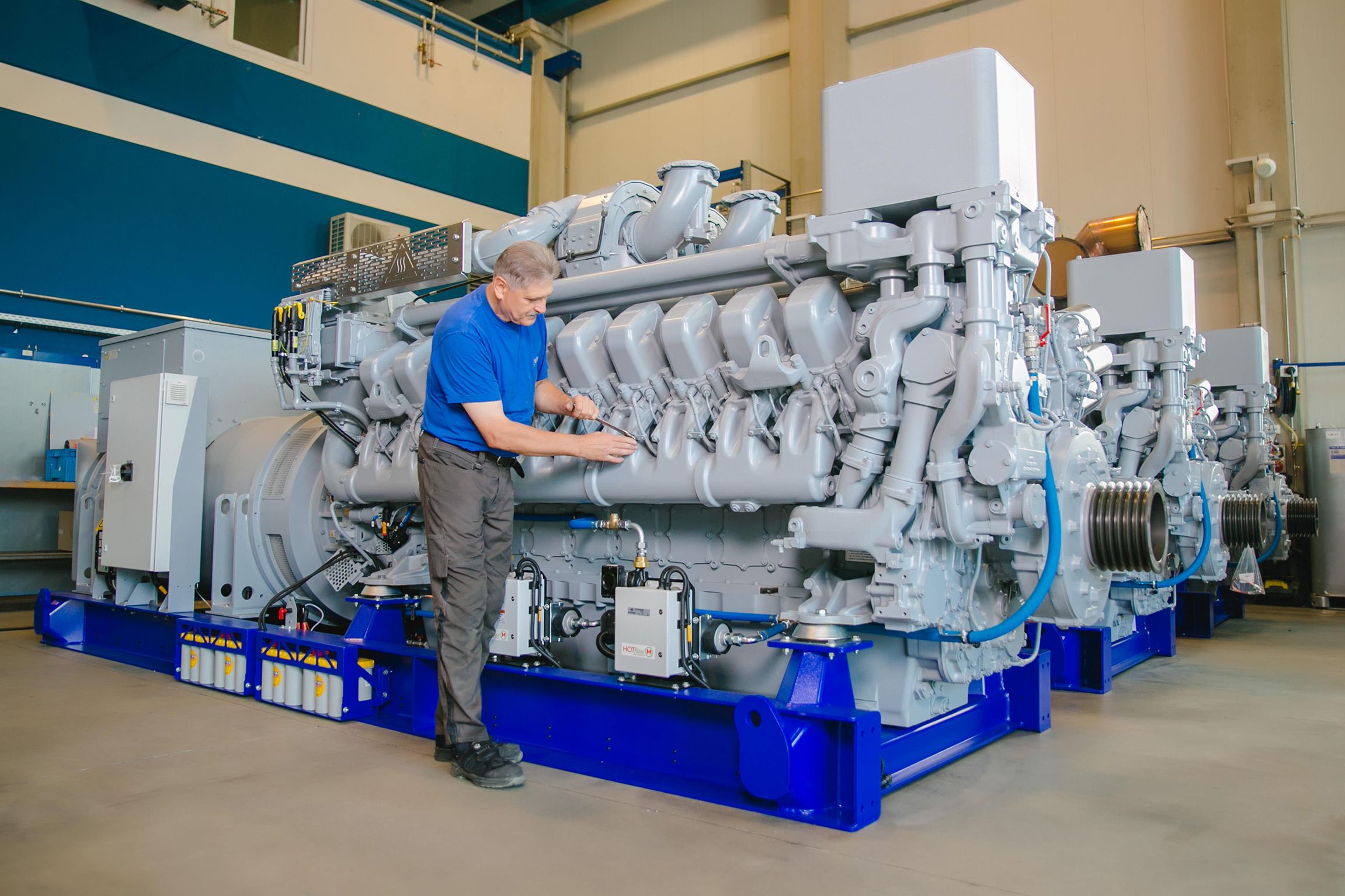The new MTU Onsite Energy 20V 4000 DS3600 genset was recently launched on the market. Based on enhanced MTU Series 4000 engines from Rolls-Royce, the 20V 4000 DS3600 diesel genset significantly outperforms previous offerings with a 10% uplift to around 3000 kW of electrical output (3730 kVA) in standby operation, and some 2700 kW of electrical output (3390 kVA) when generating prime power. Earlier models of this Series 4000 engine have a proven track record with over 23,000 units sold for power generation applications.
More than 30 of these new units are already set for delivery in 2018. Most of the initial consignment, supplying 75 MW overall, is destined for a global internet group to generate standby power for its European data centre. MTU Onsite Energy has already announced further advancement to an even higher level in the form of the 20V 4000 DS4000 diesel genset delivering roughly 16% more output, amounting to as much as 3200 kW of electrical output (4000 kVA of standby power), compared with previous offerings. At around 20 m2 both units take up strikingly little space.
Optimized engine design boosts performance
Steadily increasing power demands in mission-critical applications, like those encountered in data centres, airports or hospitals, necessitate the use of ever more powerful engines – such as the enhanced Series 4000 from MTU – to allow the gensets to step in smoothly and cover demand should a contingency arise. Performance has been boosted by optimizing engine design to allow for a higher BMEP (brake mean effective pressure ) in the cylinders, and fitting a redesigned turbocharger and modified peripheral equipment with some astutely matched components.
Genset beats the standard
Andreas Görtz, Director Power Generation Business at Rolls-Royce Power Systems, explained: “In-house expertise in all the key technologies involved here, coupled with state-of-the-art simulation and analysis tools, have allowed us to develop a generation of engines with which the new diesel genset can even beat the standard.” One reason is the high engine load factor which allows the standby genset to be operated at 85% of its maximum power on average – a value which surpasses the requirements set out in ISO-8528-1 by 15%. What’s more, the generator can run for up to 500 hours a year in its vital standby power role. This value goes way beyond the 200 hours specified in the standard, as well.
“In case of a power outage, delivering a dependable power supply in a matter of seconds is key. Data centres with their sensitive IT facilities present the additional challenge of mitigating fluctuations in voltage and frequency. These gensets have therefore been developed to curb these variations by design. Receiving the first order for the new genset from a global player in the Silicon Valley is a great honour,” continued Andreas Görtz.
Certified to feed the public grid
Series 4000 gensets comply with VDE guidelines (the German Association for Electrical, Electronic & Information Technologies) and are certified for mains parallel operation. This allows users to feed power into the public grid at a profit as well as safeguarding supply in case of an emergency. In terms of energy efficiency, this is also a sensible approach to dealing with the increasingly common grid instabilities resulting from the use of renewables. Certified diesel gensets from MTU Onsite Energy tick all the boxes in meeting the technical criteria for doing just this.

